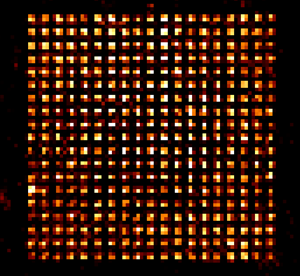Some specific questions are inaccessible even to classical supercomputers, but do not require a universal quantum computer. The aim of quantum simulators is to answer these questions, by modeling the behavior of systems made up of numerous interacting quantum objects. The idea is to simulate the problem under study with another quantum system, easier to handle, and to explore configurations or parameter sets inaccessible to the initial system. Verification of quantum simulators is essential, and requires multidisciplinary efforts to improve theoretical models.
Their applications include understanding quantum phenomena such as superconductivity at high critical temperatures, quantum magnetism, non-equilibrium quantum systems in the presence of disorder, topological phases, but also other questions in the fields of materials, high energies, astrophysics or quantum chemistry, often approached through optimization (search for the stable configuration).
Quantum simulation is an extremely dynamic field today, with very short-term stakes. Indeed, we now know how to build reliable simulators with several hundred qubits, enabling us to explore these quantum models in a way that is inaccessible to classical computers. Admittedly, the field of application of a given quantum simulator is more restricted than that of a quantum computer (by definition universal), but the emergence of practical applications, in particular to optimization problems, is stimulating the development of commercial systems in startups with lighter, and therefore more dynamic, investments than those associated with the quantum computer projects of large multinationals (Google, IBM).
Numerous platforms are being used in the laboratory to explore and apply this concept of quantum simulation: gases of atoms, gases of electrons in materials, superconducting circuits, various photonic systems and so on.

Figure 2: A square array of 361 individual rubidium atoms, trapped in optical tweezers.
The distance between nearest neighbors is 5 µm.
Photo: Thierry Lahaye, LCF, IOGS (March 2022).
Objective
L’objectif est ici le développement et la maturation des simulateurs quantiques, sous plusieurs angles : plateformes de simulation quantique diversifiées, validation des simulateurs, valorisation des simulateurs existants, extension des cas d’usage.
Team Leaders
Jérôme BEUGNON
LKB, Collège de FranceLaurent SANCHEZ-PALENCIA
CPhT, École polytechnique
Board
Jacqueline BLOCH
C2NChristophe MORA
MPQJérôme ESTEVE
LPSGoulven QUEMENER
LACAdrien SIGNOLES
Pasqal

